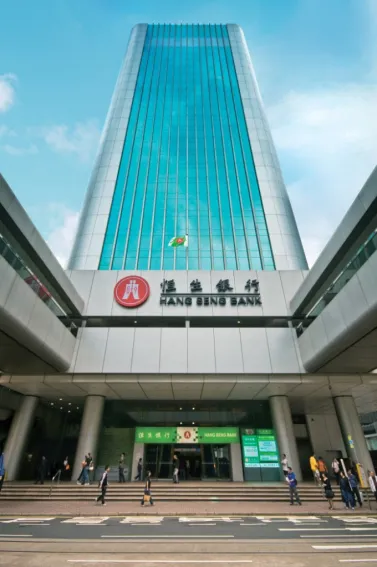
Close Chinese ties raise Hong Kong banks' compliance risk
The SAR already faces medium-high money laundering risk.
Despite bearing the load of heightened compliance risk due to its role as an international financial hub, Hong Kong banks need to work double time to untangle from the increasingly close ties with Mainland China’s financial system adding to its compliance burden, according to credit rating agency Fitch Ratings.
Also read: Non-bank Chinese exposure of Hong Kong banks doubles in 2017
The SAR’s status as a global financial center comes with the twin risk of financial crime and dirty money being diverted into the city as shown by the recent decision by the Hong Kong Monetary Authority to slap a $5m fine on Shanghai Commercial Bank (SCB) for money laundering violations.
SCB was found to have failed to sufficiently examine the background and purpose of transactions that were complex, unusually large or of an unusual pattern, and had no apparent economic or lawful purpose.
“The HKMA's challenge in maintaining oversight standards and upholding anti-money laundering regulations should also be viewed in the context of Hong Kong's increasing economic and financial linkages with China, where corporate governance and transparency tend to be weaker than in Hong Kong,” Fitch Ratings said in a statement.
Fitch earlier sounded a warning on Hong Kong banks' close Chinese integration, adding that China’s governance standards are substantially lower than Hong Kong’s. “We believe that Hong Kong's growing connectivity with China's economy and financial system creates risks for the robustness, effectiveness and independence of Hong Kong's regulatory and legal frameworks.”
Beijing’s widespread campaign to crack down on financial sector risk which could result in tighter credit conditions and unexpected capital outflows could also generate negative spillover effects to the local economy, according to S&P Global Market Intelligence.
Banks found guilty of breaching anti-money laundering rules may face reputation damage and material business restrictions. Operational costs could also rise as banks embrace automated systems and invest in training to plug weakness in their compliance systems, noted Fitch.
The penalty on SCOM represents the third time that the central bank has fined a lender under 2012 money laundering rules after slapping similar penalties on State Bank of India and Coutts.
“Fitch considers it likely that there will be more disciplinary cases ahead of a scheduled inspection by the international Financial Action Task Force (FATF) later this year,” added the credit rating agency.






![Lorem Ipsum [ABF 1]](https://cmg-qa.s3.ap-southeast-1.amazonaws.com/s3fs-public/styles/exclusive_featured_article/public/2025-03/a_hand_pointing_to_a_futuristic_technology_5b87c9d0e3_1.png.webp?itok=2w0y1WhS)


![Cross Domain [Manu + SBR + ABF + ABR + FMCG + HBR + ]](https://cmg-qa.s3.ap-southeast-1.amazonaws.com/s3fs-public/styles/exclusive_featured_article/public/2025-01/earth-3537401_1920_4.jpg.webp?itok=WaRpTJwE)








 Advertise
Advertise

